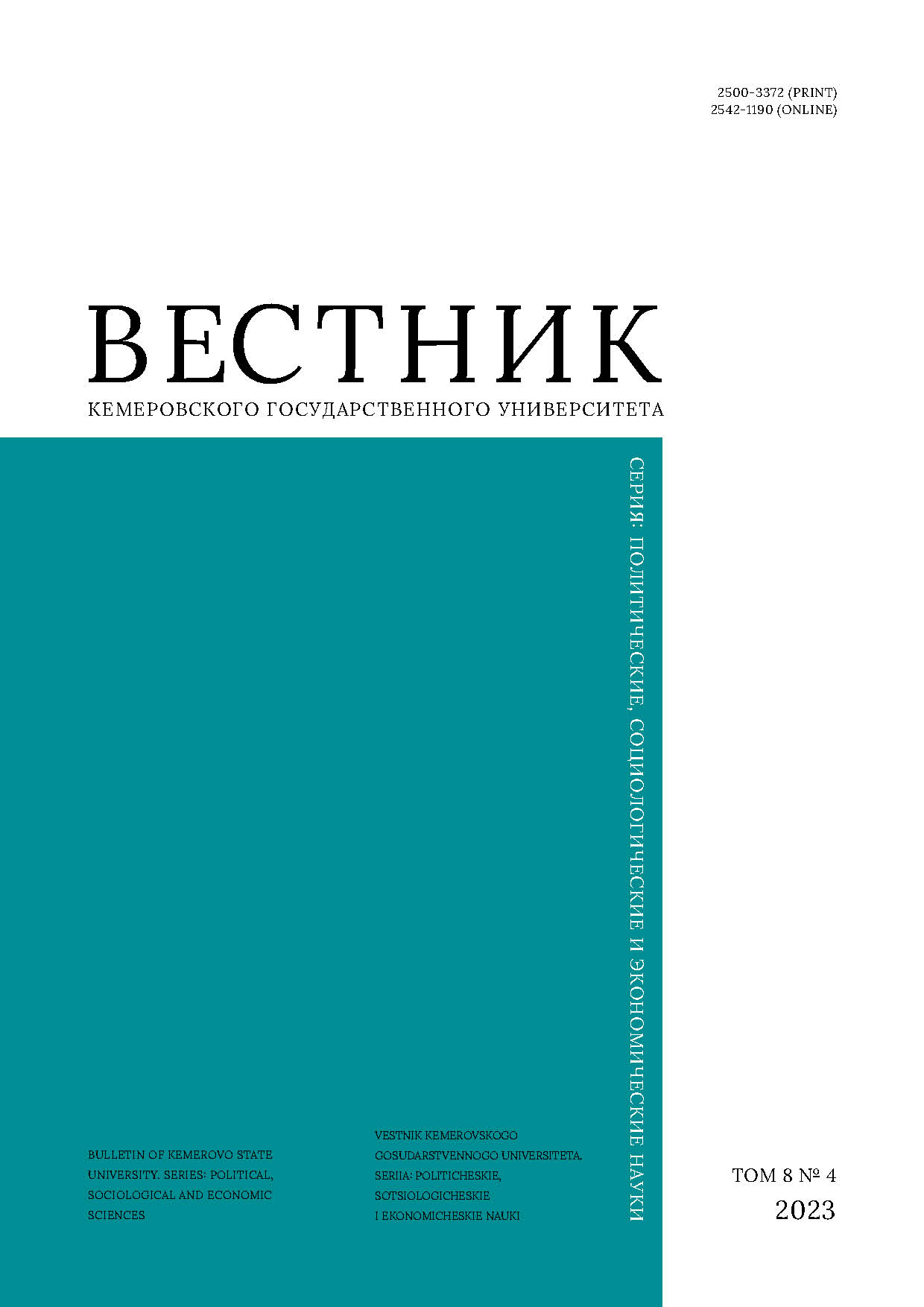from 01.01.2021 until now
Moscow, Moscow, Russian Federation
The article examines the ideology of Hindu nationalism in the domestic politics of modern India through the prism of the Rashtriya Swayamsevak Sangh socio-political activities. The author determines the relations of the organization with its branches and mechanisms for regulating internal conflicts between them. The purpose of the article is to consider and analyze the ideological and structural transformation of the organization at the end of the XX and the beginning of XXI centuries, in particular, the strategy for the inclusion of Indian Muslims in the Hindu nationalist mainstream. The article uses descriptive, historical-genetic, chronological, comparative and structural-functional methods. The author analyses the development of Hindutva ideology in the works of V. D. Savarkar and M. S. Golvalkar; the campaigns for the rapprochement of the Hindu and Muslim communities conducted by the organization and its branches, as well as the structural and ideological transformations of the Rashtriya Swayamsevak Sangh and the Sangh Parivar. The article pays particular attention to the attitude of Hindutva ideologues towards minorities, specifically Indian Muslims. At the end of the XX century significant political and economic changes in India contributed to the complication of Indian society, which affected both the Rashtriya Swayamsevak Sangh and the Sangh Parivar’s membership and ideological orientation. New branches have emerged to defend the interests of groups that were not previously in the orbit of the organization’s interests. At the same time, the successes of the Bharatiya Janata Party, the main political asset of the Rashtriya Swayamsevak Sangh, and the desire to consolidate them prompted the search for additional electoral support from the Muslim part of the country’s population. The changes demonstrate the organization’s willingness to change both structurally and ideologically in order to gain mass support in changing India. However, despite the changes, some bias towards Indian Muslims and concerns about inclusion of new Muslim branches remain.
Hindu nationalism, Hindutva, Rashtriya Swayamsevak Sangh, Sangh Parivar, Bharatiya Janata Party, Muslim Rashtriya Manch
1. Vasilev S. A. The model of ethnic democracy: the experience of hinduization of Indian democracy in the 2010s. Polylogos, 2022, 6(3). (In Russ.) https://doi.org/10.18254/S258770110019407-9
2. Smirnov M. G. The "fourth way" of development problem in India. Evraziiskii zhurnal regionalnykh i politicheskikh issledovanii, 2018, (1): 41-44. (In Russ.) https://elibrary.ru/ysubsk
3. Savarkar V. D. Essentials of Hindutva. Independently published, 2019, 58.
4. Golwalkar M. S. We or our nationhood defined. Nagpur: Bharat Publications, 1939, 148.
5. Golwalkar M. S. Bunch of thoughts. Sahitya Sindhu Prakashana, 2000, 536.
6. Jaffrelot C. The Hindu nationalist movement and Indian politics: 1925 to the 1990s. Strategies of identity-building, implantation and mobilization. L.: Hurst&Company, 1996. 592 p.
7. Hindu Nationalism. A Reader, ed. Jaffrelot C. Princeton: Princeton University Press, 2007, 424.
8. Jaffrelot C. Modi’s India. Hindu nationalism and the rise of ethnic democracy. Princeton: Princeton University Press, 2021, 656.
9. Andersen W., Damle S. The brotherhood in saffron. The Rashtriya Swayamsevak Sangh and Hindu revivalism. Penguin, 2019, 352.
10. Andersen W., Damle S. Messengers of Hindu nationalism. How the RSS reshaped India. Hurst, 2019, 320.
11. Chakrabarty B., Jha B. Hindu nationalism in India: ideology and politics. N. Y.: Routledge, 2020, 289.
12. Bhatt C. Hindu nationalism. Origins, ideologies and modern myths. Routledge, 2001, 240.
13. Basu A. Hindutva as political monotheism. Duke University Press, 2020, 295. https://doi.org/10.2307/j.ctv1595n6q
14. Savarkar V. Hindu Rashtra Darshan. New Delhi: Prabhat Prakashan, 2015, 496.
15. Smirnov M. G. Hindutva ideology and its duality. Bulletin of Chelyabinsk State University, 2004, (1): 96-11. (In Russ.) https://elibrary.ru/nybagz
16. Patel A. Our Hindu Rashtra. Westland, 2020, 356.
17. Leidig E. Hindutva as a variant of right-wing extremism. Patterns of Prejudice, 2020, 54(3): 215-237. https://doi.org/10.1080/0031322X.2020.1759861
18. Smirnov M. G. Dharmic nationalism. Bulletin of Chelyabinsk State University, 2005, (1): 96-109. (In Russ.) https://elibrary.ru/nxxjrj
19. Thachil T. Elite parties, poor voters: how social services win votes in India. N. Y.: Cambridge University Press, 2016, 352.
20. Kutsenkov A. A. Many-faced Hindutva. Vostok. Afro-aziatskie obshchestva: istoriia i sovremennost', 2010, (2): 79-94. (In Russ.) https://elibrary.ru/mbupab
21. Noorani A. G. The RSS: a menace to India. Balaji World of Books, 2019, 547.
22. Sharma J. Hindutva: exploring the idea of Hindu nationalism. HarperCollins, 2016, 248.
23. Jaffrelot C. The Sangh Parivar: a reader. Oxford University Press, 2005, 454.
24. Noorani A. G. The Muslims of India: a documentary record. Oxford University Press India, 2003, 378.
25. Pal F. Why Muslims join the Muslim wing of the RSS. Contemporary South Asia, 2020, 28(3): 275-287. https://doi.org/10.1080/09584935.2020.1776219

















